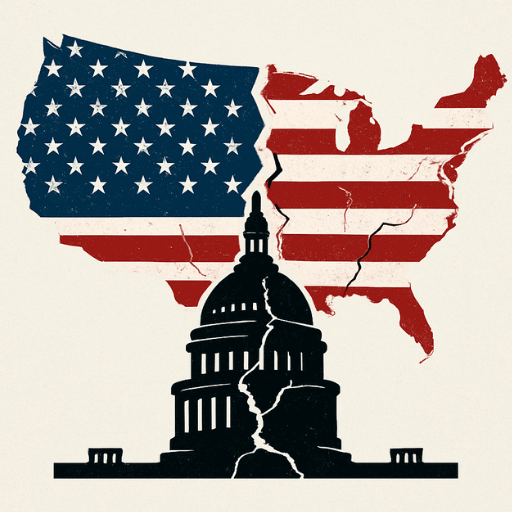Universal Background Checks: The Gun Reform America Actually Agrees On
In a nation deeply divided on gun policy, where partisan battles rage over nearly every proposed reform, one measure stands apart with remarkable consensus: universal background checks. While politicians debate and argue, the American people have already made their choice—with overwhelming, bipartisan support that transcends the usual political fault lines.
A Rare Point of National Unity
According to comprehensive polling data spanning two decades, universal background checks represent the closest thing America has to unanimous agreement on gun policy. The numbers are stunning in their consistency and scope:
- 92% of Americans supported universal background checks in a 2022 Gallup poll
- 96% approval was recorded in a 2017 Gallup survey following the Las Vegas shooting
- Support regularly polls between 80-96% across multiple organizations
- Even among gun owners themselves, 84% support this policy according to Johns Hopkins research
This isn’t just majority rule—it’s an overwhelming national mandate that politicians have consistently failed to deliver.
Beyond Party Lines: Republicans and Democrats Agree
Perhaps most remarkably, universal background checks break through America’s partisan gridlock. While Democrats and Republicans agree on little regarding gun policy, this measure commands broad support across party lines:
- 70% of Republicans support universal background checks (Pew Research, 2021)
- 92% of gun owners favor the policy (The Hill, 2015)
- Support remains strong even in traditionally pro-gun states and communities
“There is near unanimous support among voters for requiring background checks for all gun buyers,” noted a 2022 Quinnipiac University poll. This consensus extends across gender, age, race, and geographic lines—a true rarity in contemporary American politics.
What Universal Background Checks Actually Mean
Currently, federal law requires background checks only for sales by licensed dealers. This creates what experts call the “gun show loophole”—private sales at gun shows, online platforms, and between individuals can occur without any screening whatsoever. Universal background checks would close these gaps by requiring:
- Background checks for all gun sales, regardless of venue
- Screening of private sales between individuals
- Checks for online and gun show purchases
- Verification that buyers aren’t prohibited persons (felons, domestic abusers, etc.)
The policy doesn’t create new restrictions on who can buy guns—it simply ensures existing laws are consistently applied.
Why the Overwhelming Support?
The broad appeal of universal background checks stems from their perceived common-sense nature. Americans across the political spectrum view them as:
A Basic Safety Measure: Like checking IDs for alcohol purchases, background checks are seen as reasonable verification that doesn’t infringe on rights of law-abiding citizens.
Targeting the Right Problem: The policy focuses on keeping guns away from prohibited persons—criminals and dangerous individuals—rather than restricting access for responsible gun owners.
Preserving Second Amendment Rights: Unlike assault weapon bans or magazine restrictions, background checks don’t limit what law-abiding citizens can purchase.
The Effectiveness Factor
Research suggests universal background checks could significantly reduce gun violence:
- States with comprehensive background check laws have 15% lower firearm homicide rates
- Gun trafficking across state lines drops when background check laws are strengthened
- The policy helps prevent impulsive purchases during mental health crises
Most Americans believe these measures would work. A 2022 Fox News poll found that 56% of voters think tougher gun laws would reduce mass shootings, with background checks consistently polling as the most effective potential intervention.
The Political Disconnect
Despite this extraordinary public support, federal universal background check legislation has repeatedly stalled in Congress. The disconnect between public opinion and political action highlights several key factors:
Intense Minority Opposition: While small in number, opponents of background checks are often highly motivated single-issue voters who punish politicians who support gun restrictions.
Lobbying Influence: Gun rights organizations wield disproportionate political influence despite representing minority viewpoints on this specific issue.
Legislative Dysfunction: Even policies with 90%+ support can fail in a polarized political system designed for gridlock rather than action.
State-Level Progress
While federal action has stalled, many states have moved forward with universal background check laws:
- 21 states plus DC now require background checks for all handgun sales
- 14 states require checks for all gun sales, including long guns
- States with these laws see measurable reductions in gun trafficking and violence
This patchwork approach, however, limits effectiveness since guns easily cross state lines.
The Path Forward
Universal background checks represent perhaps the clearest mandate from the American people on any gun policy issue. The path to implementation faces several key challenges and opportunities:
- Building on Existing Support: With support this broad, advocates can focus on mobilizing the overwhelming majority rather than persuading skeptics.
- Emphasizing Law Enforcement Benefits: Police organizations strongly support background checks, viewing them as essential tools for keeping guns from criminals.
- Corporate Leadership: Major retailers like Walmart have independently implemented background check policies, demonstrating business community support.
A Policy Whose Time Has Come
In an era of deep political division, universal background checks offer a rare opportunity for meaningful progress on gun violence. The policy enjoys support that spans party lines, geographic regions, and demographic groups—a true national consensus.
The question isn’t whether Americans support universal background checks. The overwhelming data shows they do, consistently and decisively. The question is whether our political system can deliver on the clear will of the people.
As mass shooting after mass shooting rocks communities nationwide, Americans have identified one clear, concrete step that could help: ensuring dangerous individuals can’t easily access firearms through unchecked private sales. With support approaching unanimity, universal background checks represent not just good policy, but a democratic imperative.
The American people have spoken with remarkable clarity. The only question remaining is whether their elected representatives will listen.
Sources: Gallup, Pew Research Center, Quinnipiac University, Johns Hopkins Center for Gun Violence Solutions, Fox News polling, and comprehensive 20-year analysis of gun control polling data.



